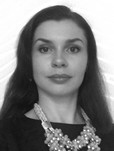Physical training and health services to young families at family sport clubs
Фотографии:
ˑ:
PhD G.S. Titova1
Master's student Yu.I. Shilova1
1Russian State University of Physical Education, Sports, Youth and Tourism (SCOLIPE), Moscow
The article analyzes the demand of young families for the modern physical education and health services; offers a range of social and educational provisions for the physical education and health services provided by family clubs; and outlines the mission and goals of such family physical education and health services and their options. The study included a questioning survey of young families to analyze their attitudes to the family physical education and health services. The questionnaire survey data were used to identify and rank preferences of the young families for the physical education and health service formats – such as family sport festivals, acupuncture, physical education and health practices, the consulting services to families on the physical education and health and healthy lifestyles related matters etc. It was found that every family attending a family club appreciates the physical education and health services, and most of the respondents reported attending the physical education and health trainings on a habitual basis. It was concluded that the physical education and health services provided by family clubs are highly important for the family life; support the physical education and health and healthy lifestyle agenda of the children and parents; help them progress in the physical education and health and healthy lifestyle knowledge, skills and habits; and facilitate the children’s development in these domains.
Keywords: young families, family club, physical education and health activity, Physical Education, healthy lifestyle.
References
- Voloshina L.N., Musanova M.M. Upravlenie fizkulturno-ozdorovitelnoy deyatelnostyu subjektov obrazovatelnogo protsessa v doshkolnom uchrezhdenii [Management of sports and health activities of subjects of educational process at preschool institution]. Moscow: ANS publ., 2012, 234 p.
- Gridasova E.Ya. Ispolzovanie fizicheskikh uprazhneniy s tselyu ozdorovleniya: Metodicheskie materialy [Physical exercises for rehabilitation: Methodical materials]. Moscow, 2010, 36 p.
- Kalinina T.V., Burova L.B. Psikhologo-pedagogicheskiy potentsial fizkulturno-ozdorovitelnoy deyatelnosti v sotsializatsii shkolnikov: Adaptatsiya uchashchikhsya vsekh stupeney obrazovaniya v usloviyakh sovremennogo obrazovatelnogo protsessa [Psychological and educational potential of physical training and health activities in schoolchildren's socializing process: Adaptation of students at all levels of education in context of actual educational process]. Arzamas: AF NNSU publ., 2013, 274 p.
- Ovchinnikova N.V. Semeyny klub – odna iz effektivnykh netraditsionnykh form vzaimodeystviya semi i shkoly [Family club as one of effective unconventional forms of family - school interaction]. Kazan: Molodoy uchenyiy publ., 2016, 702 p.
- Tiunova O.V. Tekhnologii kompleksnogo ozdorovleniya s ispolzovaniem sredstv fizicheskoy kultury i prakticheskoy psikhologii: Metodicheskie rekomendatsii [Technologies of comprehensive rehabilitation using physical education and practical psychology tools: Guidelines]. Moscow: De Novo publ., 2010, 31 p.
- Filippov N.N. Organizatsiya i soderzhanie fizkulturno-ozdorovitelnoy raboty s naseleniem po mestu zhitelstva v sovremennykh sotsialno-ekonomicheskikh usloviyakh [Organization and maintenance of domiciliary health and fitness activities with population in current socio-economic environment]. Doct. diss. abstract (Hab.). Moscow, 2005, 23 p.




 Журнал "THEORY AND PRACTICE
Журнал "THEORY AND PRACTICE